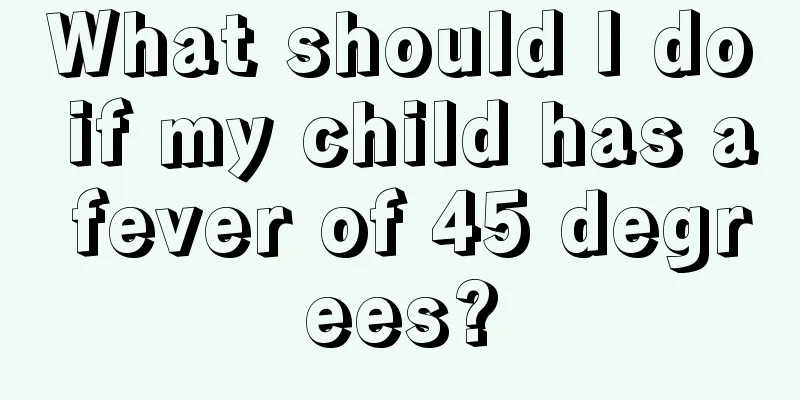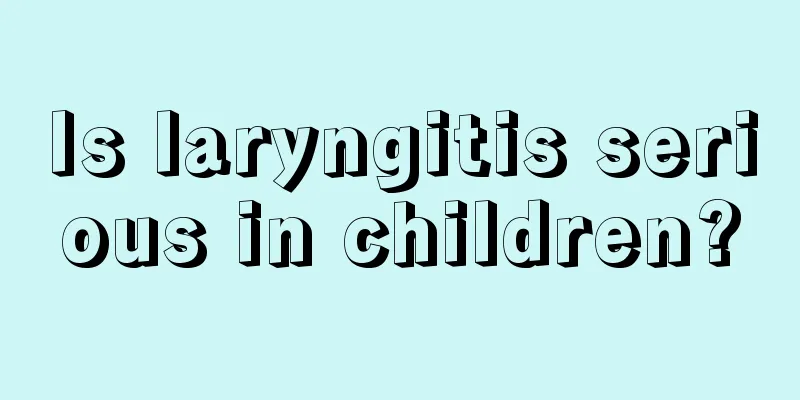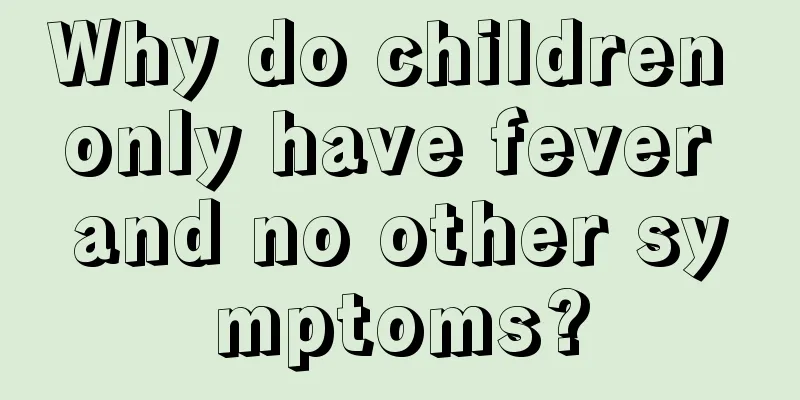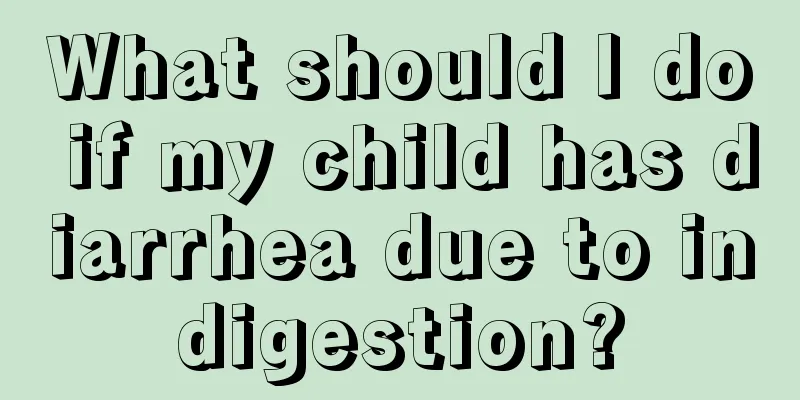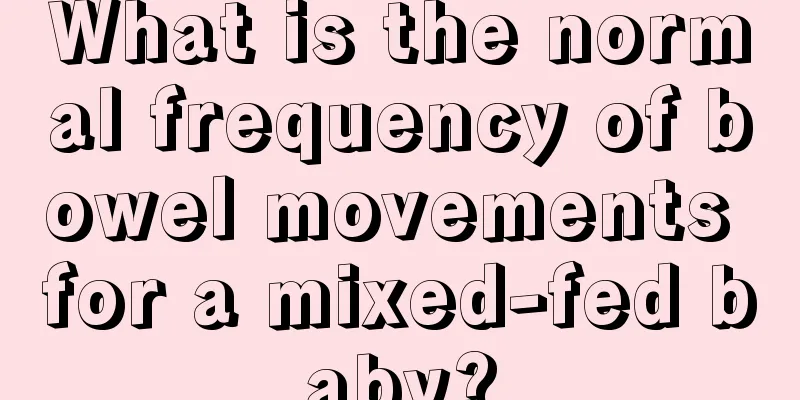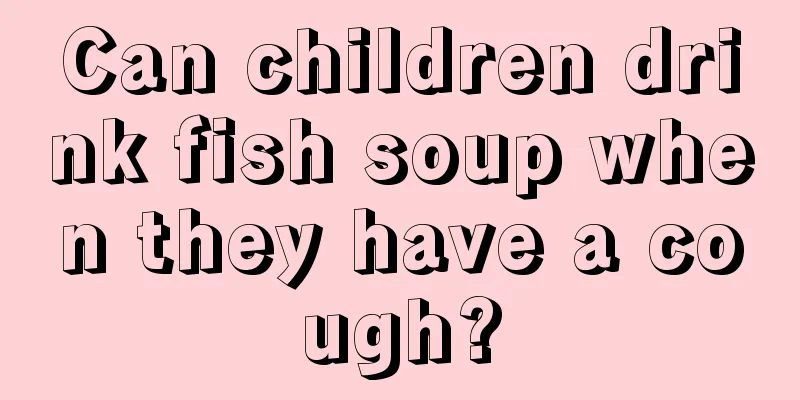How to treat laryngitis and cough in children?
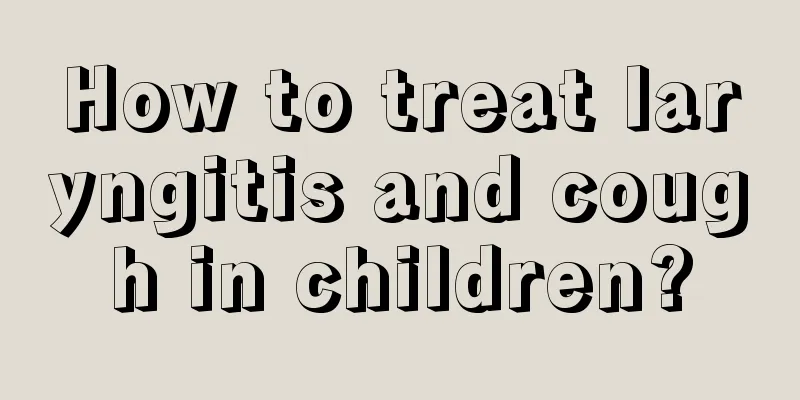
|
It is normal for children to cough, but if the cough makes strange characteristic sounds and is difficult to get rid of, or even causes difficulty breathing, parents should pay attention. This may be a symptom of laryngitis. Parents should always pay attention to their children's symptoms, pay enough attention to them, and then actively seek medical treatment. Doctors usually use nebulization, intramuscular injection, and intravenous hormones to treat the condition. 1. What is laryngitis? Why does a laryngitis cough sound so strange? Acute laryngitis in children is an acute inflammation of the laryngeal mucosa, mainly in the glottic area. The laryngeal cavity of children is small and the laryngeal cartilage support is weak. When the laryngeal cavity is inflamed, edema occurs in the mucosa and submucosa. When edema occurs in a relatively small area, the space becomes even smaller, and the airflow passing through the inner diameter of the pipe that is thinner than the original one will make a special sound, namely a "hollow, hollow" cough or a heavy cough like that of an elderly person. 2. Risk of laryngitis The specificity of the cough does not pose a risk of laryngitis. Risks of laryngitis are laryngeal edema and difficulty breathing. Laryngitis usually has an acute onset and progresses very quickly, and the symptoms are relatively severe at night. Severe laryngeal congestion and edema or laryngeal spasm can cause suffocation, difficulty breathing, and even life-threatening. 3. What should parents do if they suspect their child has laryngitis? Laryngitis progresses rapidly and can worsen suddenly at night. Therefore, when a child's voice becomes a little hoarse at the onset of laryngitis, even if there is no difficulty breathing, it should be taken more seriously than a common cold and the child should seek medical attention more actively. Suspected laryngitis: If you find that your child is hoarse, has a strange cough, cannot cough out, and is irritable, crying, or has difficulty breathing, you should see a doctor as soon as possible to avoid delaying the disease. 4. Diagnosis and treatment of laryngitis The doctor will make a diagnosis based on the child's characteristic symptoms such as cough and hoarseness. Depending on the severity of the child's condition, the doctor will give nebulized, intramuscular, or intravenous hormone treatment. The main purpose of hormone therapy is to reduce laryngeal edema and keep the airway open. For laryngitis, hormones are a necessary treatment. |
<<: What are the causes of children’s foot odor?
>>: These methods can easily cure children's tics
Recommend
Recommended dietary therapy for tracheitis in children
Bronchitis is a very torturous disease, and bronc...
Symptoms of separation anxiety in babies
In fact, the world is still relatively unfamiliar...
How to treat asthma in children and what should you pay attention to?
Asthma is related to polygenic inheritance. The p...
What are the gastrointestinal medicines for children?
Children's spleen and stomach are relatively ...
What should I do if my child has toothache caused by toothworms?
It is every child's nature to love sweets. I ...
3-year-old baby with bronchitis and cough
Nowadays, more and more people are suffering from...
Will neonatal dacryocystitis heal on its own?
Dacryocystitis is generally divided into acute an...
What should I do if my baby has a hot head and body?
The physical health of a baby is the most importa...
What medicine should children take for bacterial infection
Children’s health is what parents care about most...
How can I cure diarrhea in a 2-year-old child?
The baby's gastrointestinal function has not ...
Can children drink Coca-Cola?
Children's diet is the issue that parents nee...
Reasons why babies bite their nails
In fact, in daily life, many people do not have t...
Why is my seven-month-old baby's face yellow?
Babies of a few months old will look very cute, w...
What to do if a three-year-old child has diarrhea
Parents should pay attention to children's di...
What should a nine-month-old baby with anemia eat?
Children are the apple of every parent’s eye. If ...
